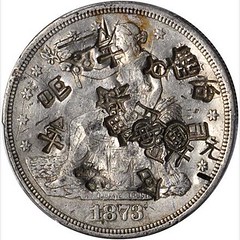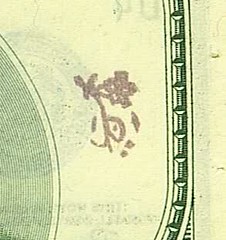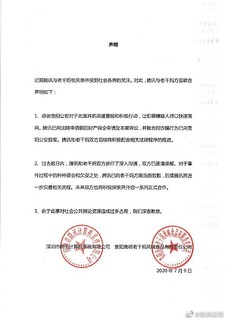
PREV ARTICLE
NEXT ARTICLE
FULL ISSUE
PREV FULL ISSUE
LOOSE CHANGE: JULY 19, 2020Here are some additional items in the media this week that may be of interest. -Editor
Hoax 'Devil Coin' Offered Jeff Starck of Coin World published a piece about the "satanic coin" tied to a famous hoax in Denmark. -Editor 
A "satanic coin" tied to a famous hoax in Denmark is coming to auction. Anholt is a tiny island in the North Sea between Jutland and Sweden, but its infamous numismatic output is one for the ages. Bruun Rasmussen's Aug. 2 auction includes one of the copper pieces from a curious episode of history. The pieces are evidence of a multinational prank orchestrated by a mild-mannered Danish art gallery clerk.
To read the complete article, see:
To read the earlier E-Sylum article, see:
The Latin Monetary Union This article on the history of the Latin Monetary Union doesn't discuss coins or paper money, but it's a nice overview, and in an interesting aside reveals who collects REALLY BIG COINS (OK, manhole covers). Found via News & Notes from the Society of Paper Money Collectors (Volume VI, Number 4, July 14, 2020). -Editor An economist from the Anglosphere is likely to tell you that the euro is structurally flawed and must implode. An economist in one of the 19 eurozone countries would say it is a work in progress and will survive. As the euro is the most widely used currency in foreign-exchange markets and central bank reserves after the US dollar, an implosion would have devastating effects within and outside the EU and thus on all of our finances. Geeks are often derided for their arcane interests – Jeremy Corbyn collected manhole covers – but obscure hobbies can be useful. For money and history geeks like me there are clear lessons from the last European common-currency experiment. Now all-but forgotten, it lasted 61 years (the euro is in its 21st year), from 1866 to 1927, though in reality it was effective for a much shorter period. This was the Latin Monetary Union (LMU). In the mid-19th century most leading currencies were metal-based; gold and silver coins were widespread, with lower-denomination coins containing cheaper metal compounds. Paper money and letters of credit were also widely used. But this paper was usually backed and redeemable into gold on demand. That is why British banknotes are still printed with the outrageous lie to "promise to pay the bearer" (the equivalent value in gold). This convertibility was in fact wound down "temporarily" between 1914 and 1931, when it was abolished.
To read the complete article, see:
Chinese Corporate Chopmarks Collectors know about Chinese chopmarks, those stamps made by merchants to certify coins or banknotes that pass their way. These still appear today on many circulating U.S. banknotes. This Wall Street Journal article discusses how chops are still an intricate part of Chinese corporate culture. -Editor
They are rubber stamps. Also known as corporate chops, the seals themselves cost about $20 each. But under Chinese law, physical possession of the red-ink-stained chop can determine who controls a corporation and the fate of billions of dollars. For as long as anyone can remember, companies in China have used corporate chops to certify legal documents, authenticate financial statements and sign contracts. Agreements that only carry signatures but no crimson corporate imprint are not legally binding in China. Though China has leapfrogged much of the Western world in cashless transactions, 5G wireless technology and facial recognition, but companies here have remained stubbornly wedded to the millennia-old chop.
To read the complete article (subscription required), see:


To read earlier E-Sylum articles, see:

Wayne Homren, Editor The Numismatic Bibliomania Society is a non-profit organization promoting numismatic literature. See our web site at coinbooks.org. To submit items for publication in The E-Sylum, write to the Editor at this address: whomren@gmail.com To subscribe go to: https://my.binhost.com/lists/listinfo/esylum All Rights Reserved. NBS Home Page Contact the NBS webmaster 
|
